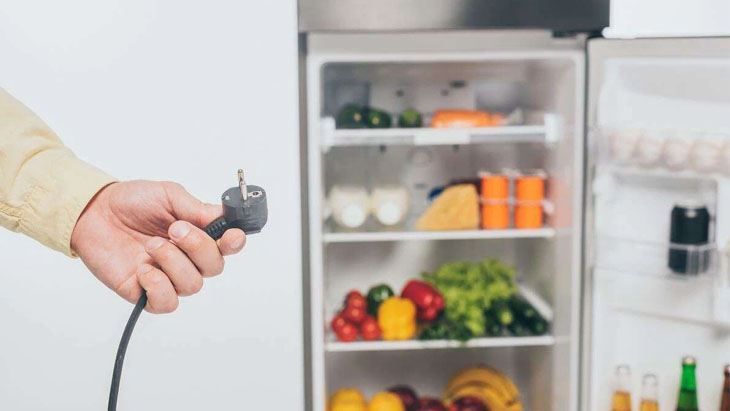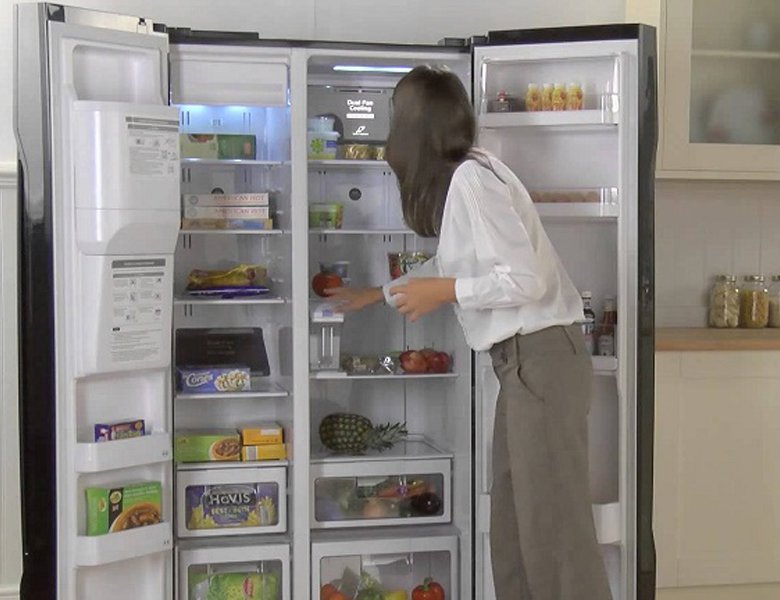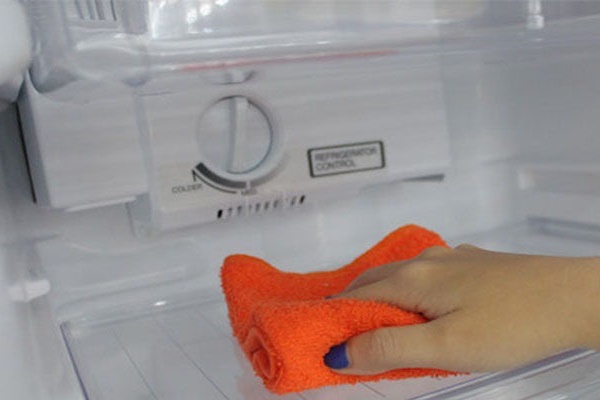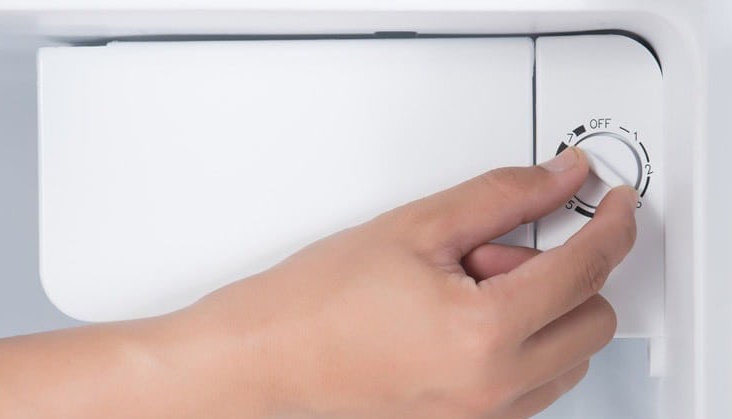The Lunar New Year is a rather long holiday, and everyone wants to return to their hometowns to reunite with their families and celebrate the new year. As appliances won’t be used for a long period, many people have the habit of unplugging their refrigerators to save costs. But is this the right thing to do?

1. Is it right or wrong to unplug the refrigerator when going back to your hometown for Tet?
Unplugging the refrigerator will, of course, save more electricity than leaving it plugged in. However, don’t let this short-term gain cause damage to your appliances. Unplugging the refrigerator for an extended period can disrupt the circulation between the condenser and the evaporator. If the refrigerator is not dried in time, oxidation will occur, causing the wire rack to rust and leak gas, creating an environment for bacteria to develop into mold and causing an unpleasant odor.
Additionally, if the refrigerator is not cleaned before unplugging, the moisture will condense and wet the sensors, leading to damage and reduced cooling capacity.
Therefore, it is best not to unplug the refrigerator for an extended period, such as during the Tet holiday. If you want to save electricity, the best way is to adjust the temperature to the lowest setting. If there is no stored food, the refrigerator will automatically turn off when it reaches the desired temperature, so it will not consume too much electricity and will not damage the refrigerator.

If you must unplug the refrigerator, after doing so, take out all the food, wait for the ice to melt, and then clean the refrigerator with a cloth. Afterward, cover it with a cotton cloth to prevent moisture from entering and causing damage.
2. How to save energy when using a refrigerator?
If you plan to stay in your hometown for an extended period, such as during Tet, and want to save energy and protect your refrigerator, you should set the temperature to 1. At this setting, the temperature will fluctuate between 2 and 5 degrees Celsius, ensuring energy efficiency while maintaining stable operation.
In addition, you should do the following:
– Clean the condenser regularly
The condenser is located at the back of the refrigerator and is responsible for removing heat from the compressor. A clean and well-maintained condenser allows the compressor to work more efficiently, ensuring sufficient cooling without overworking. This, in turn, keeps food fresh and reduces energy consumption.

– Wrap food tightly before placing it in the refrigerator
Doing so prevents bacteria and odor development and helps retain the nutritional value of the food. Additionally, with this practice, the compressor can more effectively regulate the moisture level inside the refrigerator, operating at a lower capacity and saving a significant amount of energy.
– Avoid keeping the refrigerator door open for too long
The compressor has to continuously adjust the temperature to maintain the cold and humidity if the refrigerator door is frequently opened and closed. Therefore, to ensure efficient and economical operation, refrain from keeping the door open for extended periods.
– Fill the refrigerator with just enough food
This may sound strange, but when you fill the refrigerator with food, you help maintain a balanced temperature inside. So, if your refrigerator is not fully stocked, consider adding bottles of water or ice packs to fill the space!
– Maintain optimal temperatures
Many people believe that using a refrigerator requires certain techniques. If the temperature is too warm, food will quickly lose its freshness. And if it’s too cold, the food will spoil. It is recommended to set the temperature as follows: Refrigerator compartment: 2 to 4 degrees Celsius, Freezer compartment: about -15 degrees Celsius.

– Choose a smaller-capacity refrigerator for smaller households
A larger capacity refrigerator will naturally consume more energy to cool than a smaller one. Therefore, before deciding on the capacity, consider the number of family members using the refrigerator to make the most suitable choice.
– Regularly check the door gasket
To prevent the escape of cold air, most refrigerator doors have a gasket seal on the inside. Pay attention to this seal to ensure that the cold air doesn’t leak out and cause unnecessary energy consumption.
– Turn off the automatic ice maker if necessary
The compressor consumes more energy to provide the cold required for automatic ice-making. Therefore, unless you need a large amount of ice, it is advisable to turn off this feature and use the standard ice-making function.
– Avoid placing the refrigerator directly against a wall
Position the refrigerator in a well-ventilated area, maintaining a distance of 10-15 cm from the back wall and 2 cm on each side to allow for heat dissipation. Additionally, you can raise the refrigerator slightly, about 5 cm from the ground, to prevent moisture buildup and improve heat dissipation.
By An Nhien – Vietnamnet





































